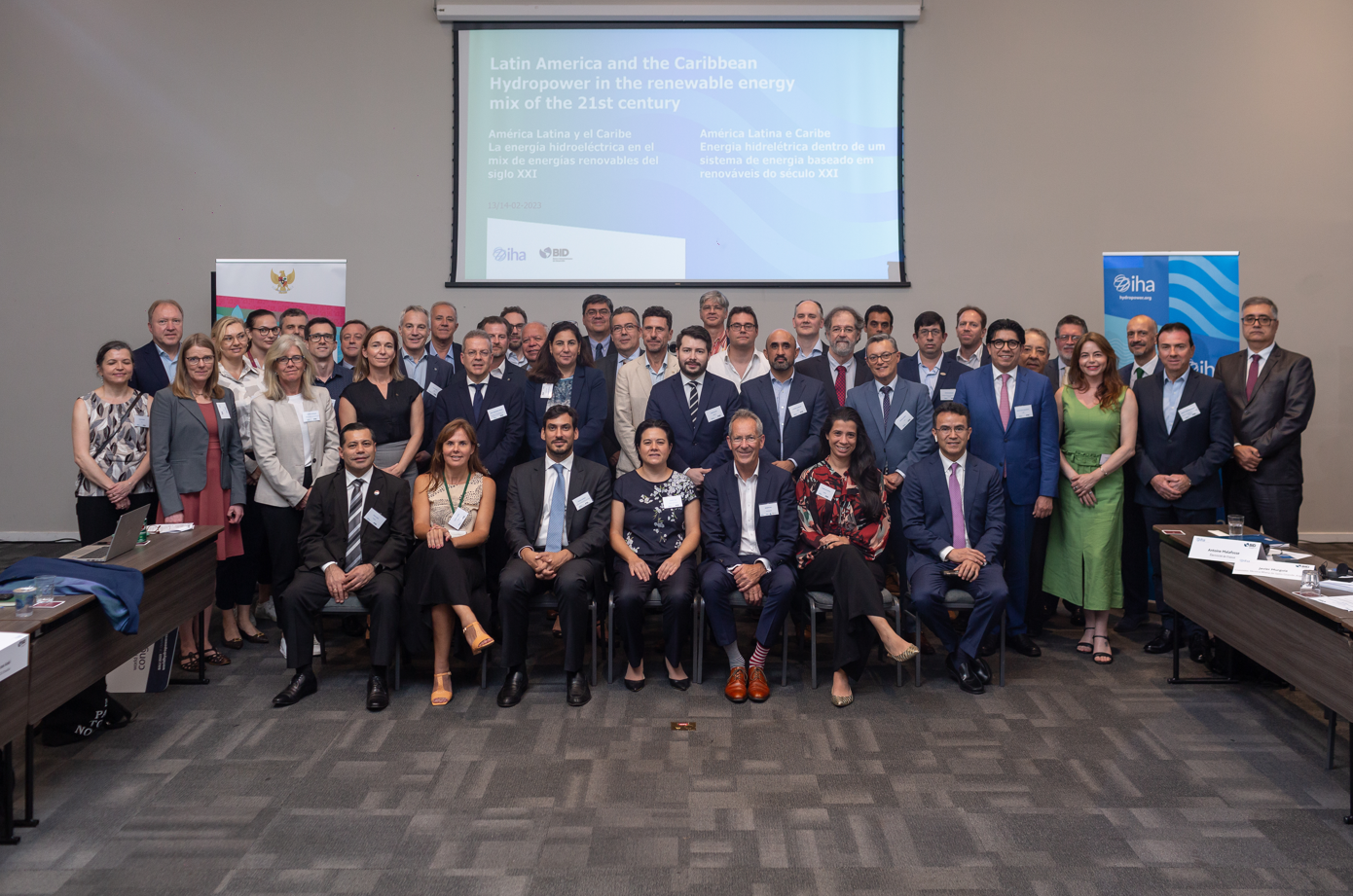
Credit: Marcos Gouvea
Sustainable hydropower is and will continue to be an essential part of the solution to meeting clean energy goals for Latin America and the Caribbean the International Hydropower Association (IHA) and the International American Development Bank (IADB) declared publicly today as part of an event highlighting the opportunities in this sector.
Almost half of Latin America and the Caribbean (LAC)’s electricity comes from hydropower, delivering essential low carbon baseload power and energy security. Hydropower also provides flexibility, reliability, and energy storage services to support and balance variable renewables such as wind and solar power. In countries where a decarbonised electricity grid has been achieved, significant amounts of hydropower are part of the energy mix crucial to the success of hydropower is for incentives to be put in place for its modernisation and development.
To maximise the opportunities hydropower offers to clean energy transition, IHA and IADB set out four key actions for policy makers:
Marcelino Madrigal, Energy Division Chief at IDB highlighted the opportunity for hydropower,
“Socially and environmentally-sound built hydroelectricity must play an important role in Latin America, complementing in a sustainable way the insertion of wind and solar energy. With these three elements, together with greater regional integration, Latin America and the Caribbean can reach the goal of 70% renewable electricity by 2030.”
Eddie Rich CEO IHA commented,
“Latin America is sitting on a huge opportunity for decarbonising electricity grids, for sustainable growth, and for climate resilience – don’t let sustainable hydropower become the forgotten giant of renewables. Together water, wind and sun can get the job done.”
Full declaration of LAC Roundtable on Sustainable Hydropower
Conclusions of LAC Roundtable on Sustainable Hydropower
Hydropower is and will continue to be an essential part of the solution to meeting climate change goals. Almost half of Latin America and the Caribbean (LAC)’s electricity comes from hydropower. As well as delivering essential low carbon baseload power and energy security, hydropower provides flexibility, reliability and energy storage services to support and balance variable renewables such as wind and solar power. In those countries where a decarbonised electricity grid has been achieved significant amounts of hydropower are part of the energy mix. As hydropower infrastructure ages, appropriate incentives need to be put in place for its modernization and development.
This roundtable, co-hosted by the Inter-American Development Bank (IDB) and the International Hydropower Association (IHA), and attended by 44 participants from 19 countries, explored the incentives and regulations that would be required to ensure that enough private and public investment is attracted for socially and environmentally sustainable hydropower, to continue reliably decarbonizing LAC power grids as increasing amounts of wind and solar are deployed.
The roundtable made the following observations for policymakers in the region:
Plan for low carbon grids now:
The long lead times associated with building cost effective system flexibility and resilience mean we have to start planning now to meet climate change goals. In particular, long timeframes for regulatory approval can deter investment – processes must be streamlined whilst ensuring projects fulfil the necessary environmental, social, low-carbon, and economic criteria. Likewise, national and regional transmission needs to be planned and implemented to ensure renewable power integration is enabled.
Electricity market arrangements should incentivise flexibility:
Many markets do not appropriately reward the flexible provision of electricity, as they mostly value energy generation, without placing a value on the provision of firm energy, storage, or other ancillary services. Policies and regulations should be designed to ensure new and existing hydropower is appropriately compensated for the complete range of services that it provides, such as long-term storage, firm capacity, inertia and frequency control, among others.
Make the most of existing infrastructure:
Modernization can provide significant system benefits with low impact. A study by IDB and IHA estimates over 70 GW of hydropower capacity in the region needs modernization in the short or medium term which represents an investment of USD 32bn. Increases in capacity can be significant – up to 20% according to an evaluation done for ageing assets in Brazil – with only incremental and manageable environmental and social impacts. But regulatory frameworks and financial mechanisms need to be designed to incentivize and support investment. Hybrids such as floating solar with hydropower, and the retrofitting of non-powered dams, can further maximise the low-carbon potential of existing infrastructure.
Integration improves management of uncertainty in hydro and other resources :
Historically hydropower placed an important role in energy integration in Latin America, especially in the southern cone, with the development of important binational hydropower projects which led to the fist large energy interchanges in the region. Today energy integration and binational interconnection are giving back to hydropower and proving and important tool to manage hydro and other resources variability.
Robust sustainability standards:
Robust international standards such as the Hydropower Sustainability Standard, which complement the standards of International Financial Institutions such as those of the IDB Group, can give stakeholders confidence that new infrastructure is being developed sustainably. These should be embedded into regulation, financing and corporate management systems.